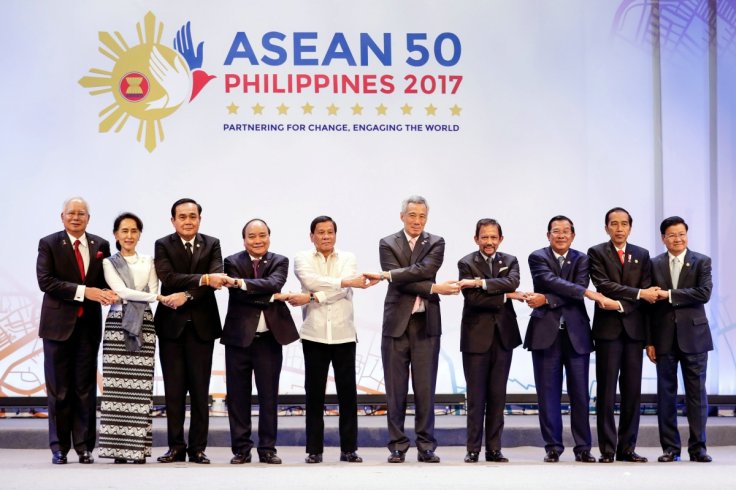
Resilience and innovation are two themes Singapore will focus on as it takes the ASEAN chairmanship this year. However, there are certain challenges the city-state would have to face as the year unfolds.
According to BMI Research, while Singapore will likely seek to ensure the continued progress of various regional initiatives, it may encounter increased frictions between ASEAN parties and China.
"With Singapore only due to hand over its chairmanship of the ASEAN-China dialogue relations to the Philippines in
the middle of the year, it is likely to have to do double duty when negotiating the formal framework on the code of conduct (CoC) in the South China Sea," BMI Research said, noting that due to the contentious nature of the agreement, the riff amongst parties could spillover into Singapore's bilateral relationship with Beijing.
Also Read: India Republic Day 2018: Security tightened as ASEAN leaders descend on Delhi
The research firm stated that the negotiations surrounding CoC are moving at a snail's pace as the aggressive Beijing has sought to determine the terms and pace of the talks.
More so, BMI Research expects Singapore to face difficulties in ensuring ASEAN unity while keeping overall ties with China on an even keel. For instance, countries that are dependent on investment from China such as Cambodia are likely to favour adopting a more accommodative stance, while Vietnam could seek a tougher line during the talks.
Add to that the close ties of Singapore to the United States, which can be perceived negatively by the city-state's ASEAN peers and China.
In addition to this, Singapore will have to tackle the increasing terror threats.
"We note that Singapore is one of the most vulnerable countries in the region due to its close relationship with the US and proximity to Malaysia and Indonesia, both of which are also seeking to address the issue of homegrown terrorism. As such, we believe that Singapore will seek to increase information sharing on suspected terrorists," BMI Research said.









